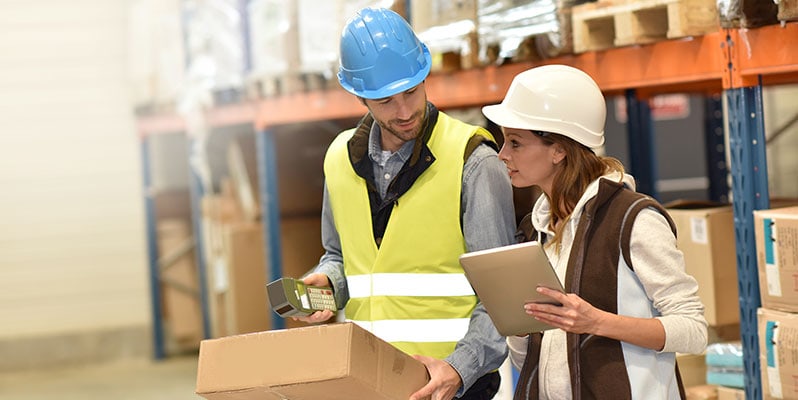
Over the last few years, there has been constant pressure from investors, shareholders, customers and non-profits to push sustainable logistics management and supply chains. And while there are a number of benefits to improving sustainable logistics management, it can sometimes be difficult to know where to start.
By managing and improving environmental, social and economic performance throughout your logistics processes, not only can your company conserve resources and save costs, but you can also increase productivity and promote corporate values.
Sustainability in logistics management needs to be given the attention it deserves, either by you as the shipper or by the provider of your choice.
1. Research and analysis from the onset
As any marketer will tell you, one of the most important phases of creating or refining marketing plans is to conduct extensive market research. This includes conducting a specific analysis into the desired target audience, what the tone and messages are, what the competitor landscape looks like, what prior data and activity can be provided, as well as what you are aiming to express in your marketing.
To apply this to the logistics industry, when developing a partnership with a freight shipper, a third party company or an outsourced logistics provider, first you must conduct a freight activity and data analysis. This is significantly important in order to understand shipping rates, patterns and everything else related to the shipping freight. Customer service issues in the form of old invoices or claims can also be tracked and then used to improve overall performance.
The logistics team can use this data to develop a plan for your company, being of the most value for your business. However, if your provider is not asking the right questions initially, then they won’t be able to deliver a strategy that hones in on saving money and optimising results.
2. Plan and strategy
After you develop an understanding of where the company stands, you can then create a strategy that will maximise the efforts of the logistics team. They can determine key statistics to then determine an audience which in turn, will increase brand awareness, which ultimately leads to more sales and revenue.
After KPI’s have been determined, your chosen freight logistics provider should work to provide a strategy or plan that is custom to the logistics of your business. This should be driven by previous research, as well as an analysis of your current freight data and activity. By building a strategy based on data, you can yield better results.
This will assist the provider in better understanding how to mitigate your unique freight claims, due to having pre-determined knowledge regarding what causes higher freight damage. The key is to put specific KPI’s in place prior to shipping with your freight system, this way the logistics provider can tailor their systems and services to you.

3. Processing and execution
When it comes to executing your strategy, sustainable logistics management can be easier said than done. In the fast-paced world of content creation and digital marketing, there are a number of complex tasks that lay ahead within this phase. Processing freight shipment, freight accounting and extensive communication are all things that have to be considered.
Nowadays, your logistics provider should remain on top of this, providing some form of logistics technology or transport management system that will increase your ability to scale. Depending on the details of your freight shipment, integration should drive this efficiency even further than before.
4. Sourcing, product and packaging design
The selection of your logistics materials should be done with sustainability at the forefront. Shippers and buyers should determine how many emissions are caused by a product through raw material selection alone, as well as the carbon intensity of the production process, the length and speed of the supply chain, as well as carbon characteristics.
Your logistics manager has the responsibility to make decisions that drive positive change, making you aware as to how you can contribute to ethical practices. You are in the position to make decisions that can actively drive change throughout the whole supply chain. You should set new targets on packaging weight and elimination, and seek cross-industry agreements on transit packaging materials. A good logistics provider will run you through industry standards, which can ultimately help you save money and in turn, help the environment.
5. Analysis
Good logistics professionals are driven by data and results. These facts and figures can be extremely valuable when it comes to evaluating progress and continuing to make decisions that yield the highest return on investment. A logistics provider that gives you meaningful data will grant you insight into what worked, what didn’t and therefore what can be improved for next time.
Regardless of what the data is, it will explain how it’s affecting your operations and bottom line, empowering you to make better business decisions based on this information. Particularly when you’re trying to build sustainable logistics management and supply chain processes.
At College for Adult Learning, we provide the Diploma of Logistics Qualification (TLI50219), a nationally accredited qualification in Australia, plus highly respected in Asia Pacific and worldwide. As Logistics professionals sit at the heart of modern business; this qualification presents an opportunity for logistics and supply chain specialists to further their careers and gain valuable skills and knowledge.